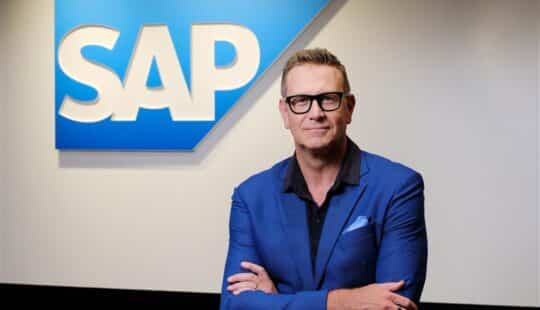Enabling Healthcare Reform and Digitalisation
Aotearoa’s health system is facing its most significant reform in a decade, seeing strategic change across organisational and workforce structures, health-outcome definitions, and patient and community engagement under the Hira initiative. All this will be enabled with digital transformation, supporting organisations to create new patient and workforce experiences while elevating operational efficiency.
SAP understand the importance of healthcare reform, the complexity of its planning and execution. Our vision is to offer insights and assistance to all health-sector stakeholders, highlighting the benefits of corporate shared services, staff self-service applications, and experience management supported through an omnichannel and community strategy for citizen health and engagement.
We believe there are 3 critical areas where we can help:
- Improving staff experience
- Overcoming the supply chain crisis
- Giving all patients and communities a voice
A Whole-of-Industry View to Workforce
Digital transformation will also drive reforms in how the industry manages it people, processes, and supplies. By incorporate a total workforce management approach, staff can operate with greater speed and agility, able to respond more rapidly to emergencies or significant change.
By supporting the wide and varied section of New Zealand Health Sectors workers, including employees, agencies, and community volunteers – there will be more options for whānau to access Kaupapa, Māori, and other appropriate services. This ensures that patient and health-sector workers have access to the right support and resources to ensure their wellbeing while providing exceptional and diverse experiences.
Taking a holistic view to Aotearoa’s health sector means considering the complete workforce, their skills, and the capabilities of the industry. This Total Workforce Management approach will reduce workforce shortages and skill gaps by upskilling staff to adapt to healthcare industry changes, allowing for streamlined experience from recruitment through to training, and retention at scale.
The digitalisation of workforce experience will improve the way organisations connect and engage with employees, regardless of whether they’re full time or contingent staff. Simplifying staff admin and using the right technologies and processes to support workforces will reduce turnover rates while fostering a culture of continuous learning, collaboration, and innovation.
Intelligent Management of Inventory
The outbreak of the global pandemic highlighted the importance of robust and resilient procurement supported by dynamic and diverse supply networks that can quickly respond to demand spikes and supply shortages.
Healthcare will need to encourage further collaboration between procurement and clinical leaders to define clinical spend policies that improve patient outcomes and service-cost efficiency. Using a central strategy, shared services, automation, and accessible purchasing applications – procurement processes can become more streamlined, resilient, and responsive.
SAP remains a market leader for enterprise platforms in the pharmaceutical and medical product sector. During the COVID-19 outbreak, we assisted Singapore Health in finding a new national supply of personal protective equipment (PPE) through SAP Ariba network, which allowed them to rapidly understand and predict PPE consumption, modify standard procurement processes, and collaborate with new suppliers.
Newer techniques will also bring more agility and safety to the supply chain, such as supplier collaboration, lean healthcare, and mobile intelligence. Providers across the globe have been using SAP’s business network and planning technologies to collaborate with supplier networks on both demand and supply of medical product. Lean healthcare has been adopted to reduce both product stockouts and product hoarding in the wards, requiring interoperability between supplier, distributor, warehouse, hospital, and ward. And allowing inventory and assets to be identified, counted, and reported for maintenance on mobile has ensured hospitals can run better under strain.
Unrivalled Engagement and Experiences
Experience is becoming more important to various industries as digitalisation improves the way people access products, services, and support – healthcare is no different. According to Harvard Business Review, private practices in the US are moving toward value-based care, whereby patient experience can impact on up to 60 per cent of healthcare funding.
Here in New Zealand, the focus on experience management is to improve patient outcomes, reduce costs, and prepare workforces to deal with a rapidly ageing population. People’s involvement will be encouraged under the new Maori Health Authority to help designing health and wellbeing services that suit them, through participation in local planning and the opportunity to engage in national-consumer forums.
Currently, Patient Experience and Outcome Surveys (PRM’s) and workforce surveys have been the main vehicle in experience management. SAP Qualtrics is the market leader in this space, changing the healthcare experience across New Zealand (Auckland DHB) and Australia (Healthscope’s net promoter score increased from 77 to 87 in 12 months). St John of God Australia similarly compares the patient experience between hospitals monthly to find issues in the clinical workflow, and to share effective practises.
In providing patients greater choice and accessibility for services through online, text, and email – the health sector can improve patient outcomes, communication, and engagement. Through a connected and multichannel view, healthcare teams can be better informed and equipped to provide more personalised care to patients, thereby driving up efficiency and value while reducing operational costs.
To understand more about how SAP solutions can help Aotearoa’s health system run smarter, better, and faster – check out our latest report ‘Supporting the goals of Aotearoa’s Health Reform’.



